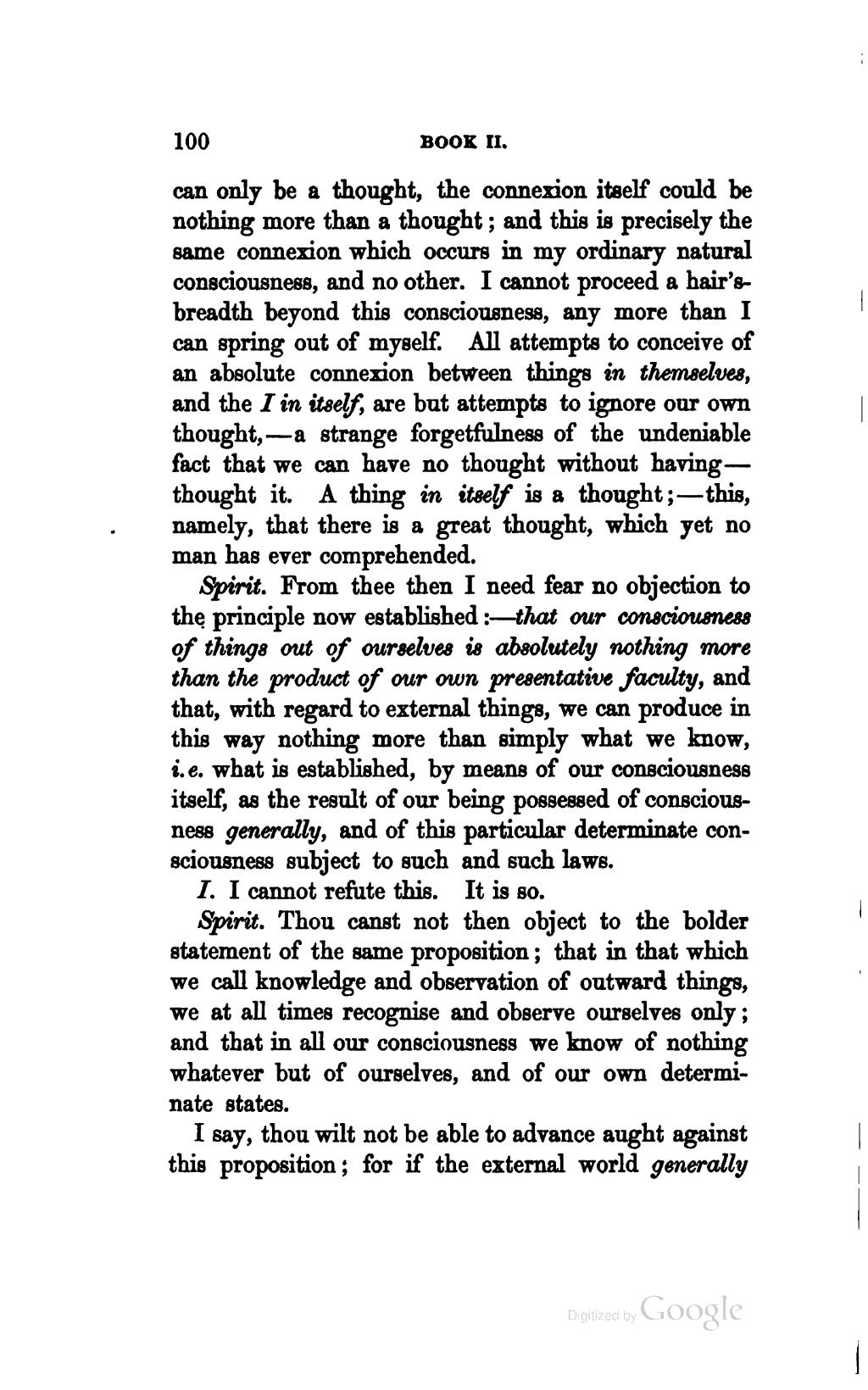can only be a thought, the connexion itself could be nothing more than a thought; and this is precisely the same connexion which occurs in my ordinary natural consciousness, and no other. I cannot proceed a hair’s-breadth beyond this consciousness, any more than I can spring out of myself. All attempts to conceive of an absolute connexion between things in themselves, and the I in itself, are but attempts to ignore our own thought,—a strange forgetfulness of the undeniable fact that we can have no thought without having—thought it. A thing in itself is a thought;—this, namely, that there is a great thought, which yet no man has ever comprehended.
Spirit. From thee then I need fear no objection to the principle now established:— that our consciousness of things out of ourselves is absolutely nothing more than the product of our own presentative faculty, and that, with regard to external things, we can produce in this way nothing more than simply what we know, i.e. what is established, by means of our consciousness itself, as the result of our being possessed of consciousness generally, and of this particular determinate consciousness subject to such and such laws.
I. I cannot refute this. It is so.
Spirit. Thou canst not then object to the bolder statement of the same proposition; that in that which we call knowledge and observation of outward things, we at all times recognise and observe ourselves only; and that in all our consciousness we know of nothing whatever but of ourselves, and of our own determinate states.
I say, thou wilt not be able to advance aught against this proposition; for if the external world generally
